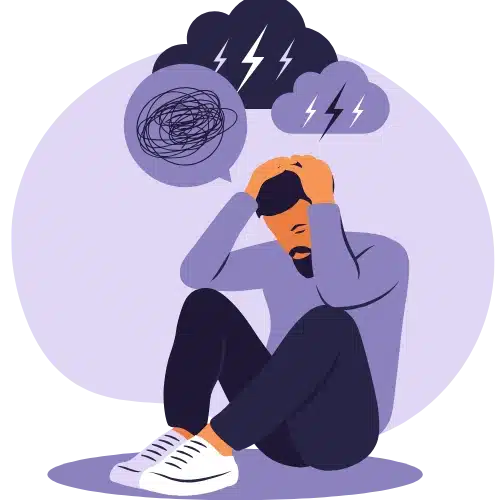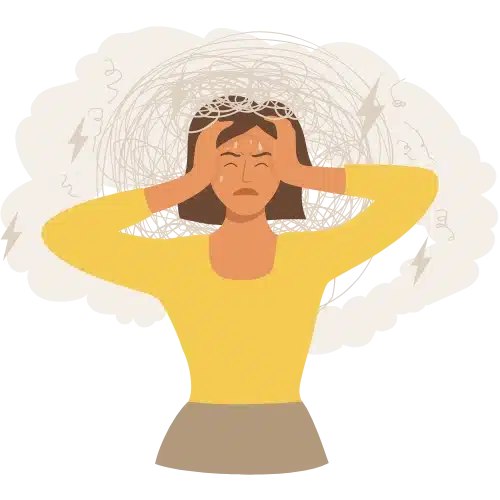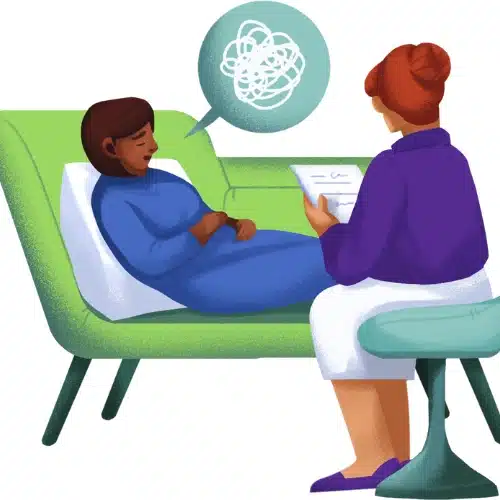Healing grief with, compassionate hypnotherapy support.
Grief & Loss Hypnotherapy – Grief and loss can feel overwhelming, affecting every part of your life, emotionally, mentally, and physically. Hypnotherapy offers a gentle, supportive way to process these complex emotions at your own pace.
By guiding you into a deeply relaxed state, hypnotherapy helps you access your subconscious mind to manage grief more effectively. This approach can ease the intensity of pain, reduce anxiety, and help you reconnect with positive memories, allowing you to heal while honouring your loss. Whether you’re struggling with the loss of a loved one or other significant life changes, hypnotherapy provides compassionate tools to support your journey toward acceptance and peace.



Ready to take the first step towards lasting change?
Contact us today to book your free discovery call or ask any questions, we’re here to help.
WHAT IS GRIEF & LOSS HYPNOTHERAPY?
Grief and loss hypnotherapy is a specialised therapeutic approach designed to support individuals coping with the emotional and psychological impact of losing someone or something significant. This form of hypnotherapy uses guided relaxation and focused attention to help access the subconscious mind, where deep emotions related to grief can be explored and processed. By doing so, it enables clients to manage overwhelming feelings, reduce anxiety, and find a sense of calm amidst the turmoil of loss. It also assists in reshaping how memories are experienced, allowing for positive recollections without the burden of intense pain, thus aiding the healing journey.
![]() Facilitates emotional processing of complex grief feelings
Facilitates emotional processing of complex grief feelings
![]() Helps reduce anxiety, stress, and emotional overwhelm
Helps reduce anxiety, stress, and emotional overwhelm
![]() Supports reconnection with positive memories without distress
Supports reconnection with positive memories without distress
![]() Encourages acceptance and gradual adjustment to loss
Encourages acceptance and gradual adjustment to loss
![]() Provides practical tools for self-soothing and ongoing emotional resilience
Provides practical tools for self-soothing and ongoing emotional resilience
BENEFITS OF GRIEF & LOSS HYPNOTHERAPY?
Grief and loss hypnotherapy offers numerous benefits for those struggling to navigate the difficult emotions that follow significant loss. By tapping into the subconscious mind, hypnotherapy helps individuals process their grief more gently and effectively, often leading to a reduction in feelings of sadness, anxiety, and emotional exhaustion. This therapy supports clients in regaining emotional balance, improving sleep, and finding peaceful moments amid distress. Moreover, it encourages acceptance of the loss and helps rebuild a sense of hope and strength for moving forward. Hypnotherapy can be tailored to suit individual needs, making it a compassionate and flexible tool during the grieving process.
![]() Reduces the intensity and frequency of distressing emotions
Reduces the intensity and frequency of distressing emotions
![]() Enhances emotional resilience and coping abilities
Enhances emotional resilience and coping abilities
![]() Promotes relaxation and improved sleep quality
Promotes relaxation and improved sleep quality
![]() Helps foster acceptance and peace with loss
Helps foster acceptance and peace with loss
![]() Encourages positive memory recall and emotional healing
Encourages positive memory recall and emotional healing


Looking for an Online Hypnotherapist?
Contact us today to book your free discovery call or ask any questions, we’re here to help.

WHY CHOOSE GRIEF & LOSS HYPNOTHERAPY?
Choosing grief and loss hypnotherapy offers a compassionate, non-invasive approach to managing the complex emotions associated with loss. Unlike traditional talk therapies, hypnotherapy works directly with the subconscious mind, allowing individuals to access deeper levels of emotional processing and healing. This can provide relief from overwhelming sadness, anxiety, and stress, helping clients to regain control over their feelings. It’s a personalised therapy that respects each person’s unique grieving journey, offering tools for self-soothing and emotional resilience. Many find that hypnotherapy not only eases their pain but also helps them reconnect with positive memories and rebuild hope for the future.
![]() Provides deep emotional healing beyond conscious awareness
Provides deep emotional healing beyond conscious awareness
![]() Tailored to individual experiences and needs
Tailored to individual experiences and needs
![]() Offers effective tools for self-calming and stress reduction
Offers effective tools for self-calming and stress reduction
![]() Supports a gentle and respectful grieving process
Supports a gentle and respectful grieving process
![]() Facilitates renewed hope and emotional strength
Facilitates renewed hope and emotional strength
DOES GRIEF & LOSS HYPNOTHERAPY WORK?
Grief and loss hypnotherapy has been shown to be an effective method for many individuals seeking relief from the intense emotions that accompany bereavement and other forms of loss. By working with the subconscious mind, hypnotherapy helps to reframe painful thoughts and emotional patterns, enabling clients to process their grief more healthily and constructively. Clinical studies and numerous client testimonials indicate that hypnotherapy can reduce symptoms such as anxiety, depression, and sleep disturbances commonly associated with grief. While it may not eliminate grief entirely, which is a natural and ongoing process, it provides valuable tools to manage emotions and find peace.
![]() Helps reframe negative emotional responses to loss
Helps reframe negative emotional responses to loss
![]() Supports healthier coping mechanisms during grief
Supports healthier coping mechanisms during grief
![]() Can reduce anxiety, depression, and stress linked to bereavement
Can reduce anxiety, depression, and stress linked to bereavement
![]() Improves sleep quality affected by grief-related distress
Improves sleep quality affected by grief-related distress
![]() Complements other therapeutic approaches for holistic healing
Complements other therapeutic approaches for holistic healing

How it Works
We offer availability with highly experienced therapists suited to your needs and book the appointment.
Meet the practitioner and begin the road to self-improvement. Have any concerns? Let us know so we can assist.
Find a Therapist in Spain

GRIEF AND LOSS THERAPIES
Before reaching out, please take a moment to review our Menopause Hypnotherapy FAQs.
Here you’ll find answers to common questions about how menopause hypnotherapy works, what to expect during sessions, the techniques we use, and pricing details. This will help us respond more efficiently and ensure you have all the important information before beginning your journey towards relief from menopausal symptoms, improved wellbeing, and greater comfort.
How does grief and loss hypnotherapy differ from traditional therapy?
 Grief and loss hypnotherapy is a specialised therapeutic approach that uses hypnosis to access the subconscious mind, allowing for deep emotional processing in a relaxed state. Unlike traditional talk therapy, which often focuses on conscious discussion of feelings and experiences, hypnotherapy works by guiding you into a trance-like state where your mind is more open to positive suggestions and healing techniques. This can help alleviate intense emotions, reduce anxiety, and foster acceptance more quickly. Hypnotherapy complements traditional methods by offering a direct pathway to subconscious healing, making it a powerful option for those struggling with grief.
Grief and loss hypnotherapy is a specialised therapeutic approach that uses hypnosis to access the subconscious mind, allowing for deep emotional processing in a relaxed state. Unlike traditional talk therapy, which often focuses on conscious discussion of feelings and experiences, hypnotherapy works by guiding you into a trance-like state where your mind is more open to positive suggestions and healing techniques. This can help alleviate intense emotions, reduce anxiety, and foster acceptance more quickly. Hypnotherapy complements traditional methods by offering a direct pathway to subconscious healing, making it a powerful option for those struggling with grief.
![]() Accesses subconscious emotions beyond conscious awareness
Accesses subconscious emotions beyond conscious awareness
![]() Facilitates deep relaxation and stress reduction
Facilitates deep relaxation and stress reduction
![]() Helps reframe painful memories with positive associations
Helps reframe painful memories with positive associations
![]() Often works more quickly than some traditional therapies
Often works more quickly than some traditional therapies
![]() Can be combined effectively with counselling or psychotherapy
Can be combined effectively with counselling or psychotherapy
Is hypnotherapy suitable for all types of grief, such as losing a loved one and divorce?
 Yes, hypnotherapy can be effective for a wide range of grief types, not just the loss of a loved one. Grief arising from divorce, job loss, health changes, or major life transitions can cause similar emotional distress and require healing. Hypnotherapy helps by addressing the emotional pain, facilitating acceptance, and encouraging a shift in perspective. It provides tools to manage stress, anxiety, and sadness associated with any form of loss, supporting individuals to regain balance and move forward in life with greater resilience.
Yes, hypnotherapy can be effective for a wide range of grief types, not just the loss of a loved one. Grief arising from divorce, job loss, health changes, or major life transitions can cause similar emotional distress and require healing. Hypnotherapy helps by addressing the emotional pain, facilitating acceptance, and encouraging a shift in perspective. It provides tools to manage stress, anxiety, and sadness associated with any form of loss, supporting individuals to regain balance and move forward in life with greater resilience.
![]() Applicable to emotional loss beyond death
Applicable to emotional loss beyond death
![]() Supports adjustment to life changes and transitions
Supports adjustment to life changes and transitions
![]() Helps manage anxiety and depression related to grief
Helps manage anxiety and depression related to grief
![]() Encourages positive coping and resilience
Encourages positive coping and resilience
![]() Effective for both sudden and gradual losses
Effective for both sudden and gradual losses
Can hypnotherapy help with complicated or prolonged grief?
 Hypnotherapy is a valuable tool for addressing complicated or prolonged grief, which involves persistent and intense feelings that interfere with daily life. By accessing the subconscious mind, hypnotherapy can gently explore unresolved emotions and traumatic experiences that may be blocking healing. It can help reduce overwhelming pain, lessen feelings of despair, and support gradual acceptance. Working alongside other therapeutic approaches, hypnotherapy offers a safe and supportive environment to process grief at your own pace.
Hypnotherapy is a valuable tool for addressing complicated or prolonged grief, which involves persistent and intense feelings that interfere with daily life. By accessing the subconscious mind, hypnotherapy can gently explore unresolved emotions and traumatic experiences that may be blocking healing. It can help reduce overwhelming pain, lessen feelings of despair, and support gradual acceptance. Working alongside other therapeutic approaches, hypnotherapy offers a safe and supportive environment to process grief at your own pace.
![]() Addresses unresolved emotional trauma linked to grief
Addresses unresolved emotional trauma linked to grief
![]() Helps reduce symptoms of persistent sorrow and depression
Helps reduce symptoms of persistent sorrow and depression
![]() Facilitates gradual emotional acceptance and healing
Facilitates gradual emotional acceptance and healing
![]() Supports improved coping with everyday activities
Supports improved coping with everyday activities
![]() Can be combined with other therapies for comprehensive care
Can be combined with other therapies for comprehensive care
Are there any risks or side effects associated with grief hypnotherapy?
 Grief hypnotherapy is generally safe and non-invasive with few risks or side effects. Some individuals may experience temporary emotional release or heightened awareness of feelings, which is part of the healing process. It’s important to work with a qualified, experienced hypnotherapist who can provide a supportive environment and manage any emotional responses sensitively. If you have a history of certain mental health conditions, such as psychosis, you should discuss this with your therapist beforehand to ensure hypnotherapy is appropriate for you.
Grief hypnotherapy is generally safe and non-invasive with few risks or side effects. Some individuals may experience temporary emotional release or heightened awareness of feelings, which is part of the healing process. It’s important to work with a qualified, experienced hypnotherapist who can provide a supportive environment and manage any emotional responses sensitively. If you have a history of certain mental health conditions, such as psychosis, you should discuss this with your therapist beforehand to ensure hypnotherapy is appropriate for you.
![]() Typically safe with minimal side effects
Typically safe with minimal side effects
![]() May trigger emotional release during sessions
May trigger emotional release during sessions
![]() Qualified therapists provide a safe setting
Qualified therapists provide a safe setting
![]() Not suitable for some severe mental health conditions
Not suitable for some severe mental health conditions
![]() Always disclose relevant medical history to your therapist
Always disclose relevant medical history to your therapist
Can it help me remember positive memories without feeling overwhelmed by sadness?
 Yes, one of the strengths of hypnotherapy is its ability to help you access positive memories while reducing the emotional pain associated with grief. Through guided relaxation and suggestion, hypnotherapy can help reframe painful memories, allowing you to cherish the good times without being overwhelmed by loss. This process fosters emotional balance, enabling you to hold on to loving memories with comfort and peace rather than sadness and distress.
Yes, one of the strengths of hypnotherapy is its ability to help you access positive memories while reducing the emotional pain associated with grief. Through guided relaxation and suggestion, hypnotherapy can help reframe painful memories, allowing you to cherish the good times without being overwhelmed by loss. This process fosters emotional balance, enabling you to hold on to loving memories with comfort and peace rather than sadness and distress.
![]() Helps reframe memories with calming, positive emotions
Helps reframe memories with calming, positive emotions
![]() Supports emotional balance during memory recall
Supports emotional balance during memory recall
![]() Reduces overwhelming sadness linked to loss
Reduces overwhelming sadness linked to loss
![]() Encourages loving and peaceful remembrance
Encourages loving and peaceful remembrance
![]() Improves emotional resilience over time
Improves emotional resilience over time
How does hypnotherapy support emotional healing?
 Hypnotherapy complements other treatments such as counselling or psychotherapy by accessing subconscious emotional layers that may be harder to reach through talk therapy alone. While counselling focuses on conscious reflection and cognitive processing, hypnotherapy works at a deeper level to change emotional responses and thought patterns. Together, these approaches provide a holistic healing experience, counselling addresses behaviours and beliefs, while hypnotherapy promotes relaxation, acceptance, and emotional release.
Hypnotherapy complements other treatments such as counselling or psychotherapy by accessing subconscious emotional layers that may be harder to reach through talk therapy alone. While counselling focuses on conscious reflection and cognitive processing, hypnotherapy works at a deeper level to change emotional responses and thought patterns. Together, these approaches provide a holistic healing experience, counselling addresses behaviours and beliefs, while hypnotherapy promotes relaxation, acceptance, and emotional release.
![]() Enhances the effectiveness of traditional therapy
Enhances the effectiveness of traditional therapy
![]() Targets subconscious emotional patterns
Targets subconscious emotional patterns
![]() Promotes relaxation and stress reduction
Promotes relaxation and stress reduction
![]() Supports emotional release and acceptance
Supports emotional release and acceptance
![]() Can be integrated into a broader treatment plan
Can be integrated into a broader treatment plan
Is hypnotherapy effective for children or teenagers experiencing grief?
 Hypnotherapy can be a gentle and effective way to help children and teenagers cope with grief, although techniques may be adapted to suit their developmental stage. It can provide a safe space for young people to express difficult emotions, manage anxiety, and develop healthy coping skills. Hypnosis can also help reduce feelings of isolation and confusion by promoting relaxation and emotional resilience. Working with a specialist experienced in paediatric hypnotherapy is important to ensure the approach is age-appropriate and supportive.
Hypnotherapy can be a gentle and effective way to help children and teenagers cope with grief, although techniques may be adapted to suit their developmental stage. It can provide a safe space for young people to express difficult emotions, manage anxiety, and develop healthy coping skills. Hypnosis can also help reduce feelings of isolation and confusion by promoting relaxation and emotional resilience. Working with a specialist experienced in paediatric hypnotherapy is important to ensure the approach is age-appropriate and supportive.
![]() Provides age-appropriate emotional support
Provides age-appropriate emotional support
![]() Helps manage anxiety and sadness in young people
Helps manage anxiety and sadness in young people
![]() Encourages healthy coping mechanisms
Encourages healthy coping mechanisms
![]() Creates a safe, non-judgmental environment
Creates a safe, non-judgmental environment
![]() Should be delivered by qualified paediatric hypnotherapists
Should be delivered by qualified paediatric hypnotherapists
Can hypnotherapy help with feelings of guilt related to grief?
 Feelings of guilt are common in the grieving process, often manifesting as “what if” thoughts or regrets. Hypnotherapy can help by gently guiding you to explore these emotions in a safe, relaxed state, allowing your subconscious mind to reframe negative beliefs and reduce self-blame. Through positive suggestions and emotional processing, hypnotherapy supports self-compassion and forgiveness. This therapeutic approach enables you to release overwhelming guilt and move toward acceptance and healing, promoting a healthier mental and emotional state as you navigate your grief journey.
Feelings of guilt are common in the grieving process, often manifesting as “what if” thoughts or regrets. Hypnotherapy can help by gently guiding you to explore these emotions in a safe, relaxed state, allowing your subconscious mind to reframe negative beliefs and reduce self-blame. Through positive suggestions and emotional processing, hypnotherapy supports self-compassion and forgiveness. This therapeutic approach enables you to release overwhelming guilt and move toward acceptance and healing, promoting a healthier mental and emotional state as you navigate your grief journey.
![]() Addresses subconscious guilt and self-blame
Addresses subconscious guilt and self-blame
![]() Promotes self-compassion and forgiveness
Promotes self-compassion and forgiveness
![]() Helps reframe negative thought patterns
Helps reframe negative thought patterns
![]() Reduces emotional distress linked to guilt
Reduces emotional distress linked to guilt
![]() Supports healthier acceptance of loss
Supports healthier acceptance of loss
Can hypnotherapy help with grief-related anxiety or panic attacks?
 Grief can trigger anxiety and panic attacks due to overwhelming emotions and uncertainty. Hypnotherapy is effective in calming the nervous system by inducing a deeply relaxed state, helping to reduce the frequency and intensity of anxiety symptoms. It also helps reframe anxious thoughts and teaches coping mechanisms that improve emotional regulation. With hypnotherapy, individuals can regain a sense of control and calm, enabling them to face grief with greater resilience and reduced distress.
Grief can trigger anxiety and panic attacks due to overwhelming emotions and uncertainty. Hypnotherapy is effective in calming the nervous system by inducing a deeply relaxed state, helping to reduce the frequency and intensity of anxiety symptoms. It also helps reframe anxious thoughts and teaches coping mechanisms that improve emotional regulation. With hypnotherapy, individuals can regain a sense of control and calm, enabling them to face grief with greater resilience and reduced distress.
![]() Calms the nervous system through relaxation
Calms the nervous system through relaxation
![]() Reduces frequency and severity of panic attacks
Reduces frequency and severity of panic attacks
![]() Reframes anxious thoughts and beliefs
Reframes anxious thoughts and beliefs
![]() Teaches effective coping techniques
Teaches effective coping techniques
![]() Improves emotional regulation and resilience
Improves emotional regulation and resilience



